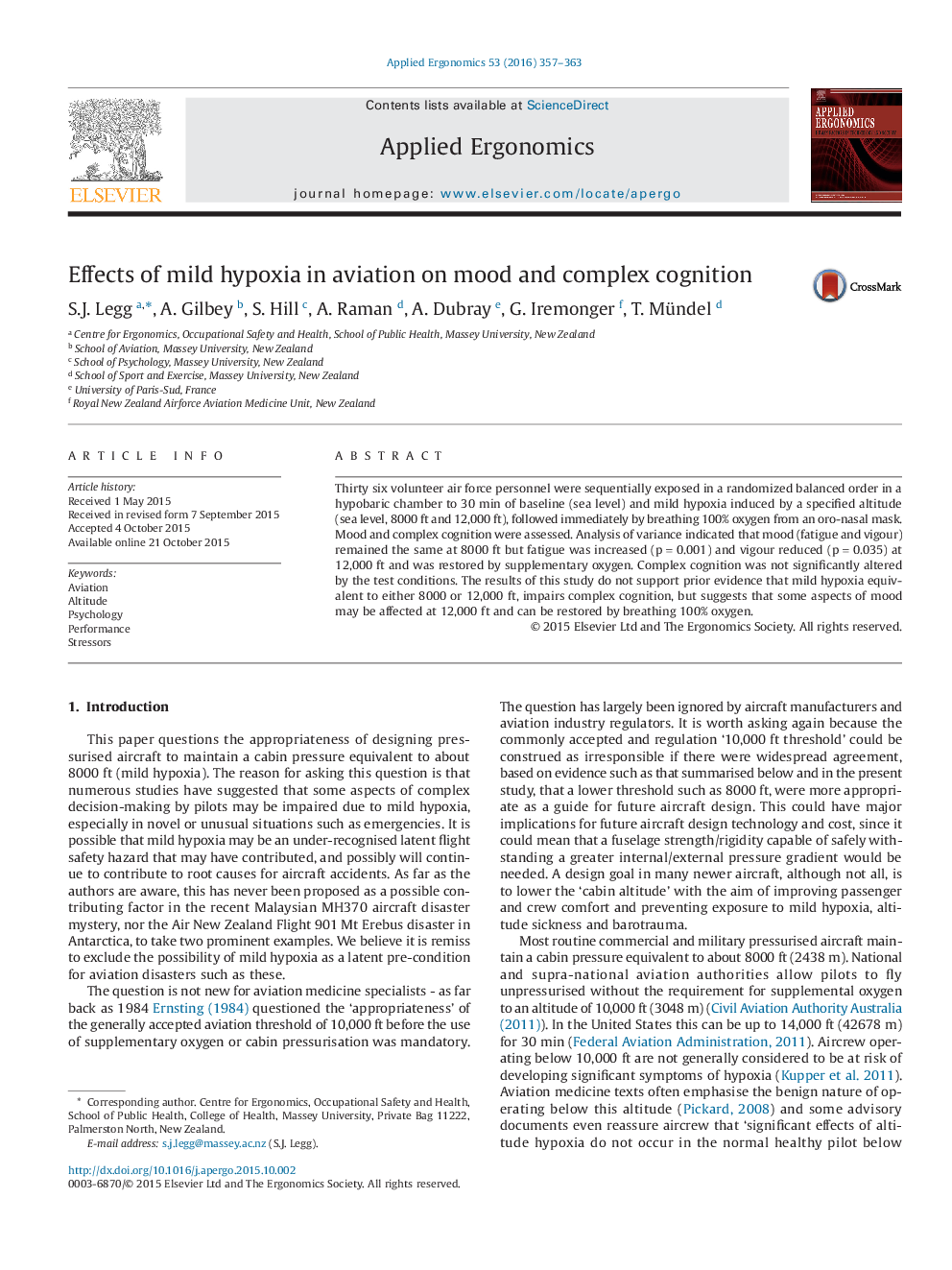| Article ID | Journal | Published Year | Pages | File Type |
|---|---|---|---|---|
| 548316 | Applied Ergonomics | 2016 | 7 Pages |
•Mild hypoxia equivalent to 8000 ft does not appear to impair complex cognition.•Aircrew and passengers may feel more fatigued and less vigorous at a cabin altitude of 12,000 ft.•This may be restored by breathing supplementary oxygen.
Thirty six volunteer air force personnel were sequentially exposed in a randomized balanced order in a hypobaric chamber to 30 min of baseline (sea level) and mild hypoxia induced by a specified altitude (sea level, 8000 ft and 12,000 ft), followed immediately by breathing 100% oxygen from an oro-nasal mask. Mood and complex cognition were assessed. Analysis of variance indicated that mood (fatigue and vigour) remained the same at 8000 ft but fatigue was increased (p = 0.001) and vigour reduced (p = 0.035) at 12,000 ft and was restored by supplementary oxygen. Complex cognition was not significantly altered by the test conditions. The results of this study do not support prior evidence that mild hypoxia equivalent to either 8000 or 12,000 ft, impairs complex cognition, but suggests that some aspects of mood may be affected at 12,000 ft and can be restored by breathing 100% oxygen.
